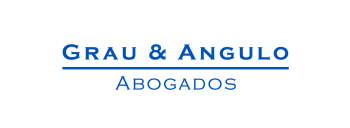In its judgment of June 30 2017, the Barcelona Court of Appeal confirmed the Barcelona Commercial Court Number 4 first-instance decision, which had dismissed the patent infringement action filed by Novartis against several generics for alleged infringement of European Patent 2'292'219 (EP'219).
Novartis is the holder of EP'219, which relates to a therapeutic transdermal system for the administration of the drug rivastigmine. Novartis sells rivastigmine patches for the treatment of Alzheimer's disease under the trademark EXELON.
In November 2013 Novartis filed a patent infringement action against a number of companies which had launched or were planning to launch generic rivastigmine patches. Novartis filed similar actions in other EU countries, including the United Kingdom, Germany, Austria and Belgium.
While these court proceedings were taking place in different EU countries, 14 opponents were challenging the validity of EP'219 before the European Patent Office (EPO).
In a June 8 2015 judgment, the Barcelona Commercial Court Number 4 dismissed Novartis's action in Spain, concluding that the defendants' products fell outside the scope of the patent and that, as such, their sale did not entail any infringement.
In its June 30 2017 judgment, the Barcelona Court of Appeal dismissed Novartis's appeal and confirmed the first-instance decision.
The patent's only claim reads as follows:
"1. Rivastigmine for use in a method of preventing, treating or delaying progression of dementia or Alzheimer's disease, wherein the rivastigmine is administered in a [transdermal therapeutic system (TTS)] and the starting dose is that of a bilayer TTS of 5cm2 with a loaded dose of 9 mg rivastigmine, wherein one layer:
has a weight per unit area of 60 g/m2 and the following composition:
- rivastigmine free base 30.0 wt %
- Durotak® 387-2353 (polyacrylate adhesive) 49.9 wt %
- Plastoid® B (acrylate copolymer) 20.0 wt %
- Vitamin E 0.1 wt %
and wherein said layer is provided with a silicone adhesive layer having a weight per unit area of 30 g/m2 according to the following composition:
- Bio-PSA® Q7-4302 (silicon adhesive) 98.9 wt %
- Silicone oil 1.0 wt %
- Vitamin E 0.1 wt %."
It was undisputed that the defendants' rivastigmine patches did not comprise some of the features of the claim (ie, silicone oil and Vitamin E). Rather, the dispute between the parties related to the interpretation and scope of the claim.
Novartis defended a broad interpretation of the claim, according to which any rivastigmine patch used for the treatment of Alzheimer's disease where the starting dose of the treatment is the same as that provided by its Exelon small patch (nine milligrams, five centimetres squared) falls within the scope of the claim (ie, regardless of its structure and composition).
For their part, the defendants argued that it is impossible to disregard the structural and composition features of the claim, and that – therefore – there could be no infringement. In addition, they argued that, should Novartis's interpretation of the claim be upheld, the patent would be invalid on the grounds of added matter, lack of inventive step and insufficiency of disclosure.
In its first-instance decision, the Barcelona Commercial Court Number 4 upheld the defendants' interpretation of the claim based on Article 69 of the European Patent Convention and thus dismissed Novartis's infringement action. This judgment was in line with the court's previous decisions and those of the Barcelona Court of Appeal in preliminary injunction proceedings.
With its June 30 2017 judgment, the Barcelona Court of Appeal confirmed the first-instance decision, thus interpreting the claim and establishing its scope in line with the defendants. In particular, the court reiterated the importance of interpreting a claim in light of the description of the patent, which in this case clearly supported the defendants' understanding of its scope.
Notably, some EU courts reached different conclusions as to the scope of EP'219. For instance, the UK Patents Court upheld Novartis's interpretation of the claim, although it still dismissed the infringement action after concluding that the patent was invalid due to added matter and lack of inventive step.
In any event, following the oral proceedings held on July 18 2017, the EPO Board of Appeal confirmed the revocation of EP'219 (which had been revoked in the first instance by the EPO Opposition Division). The EPO Board of Appeal's full decision has yet to be issued, but this is presumably the end of the story, as the final revocation of the patent is expected to lead to the termination of all European litigations concerning the patent.
This article was first published by the International Law Office, a premium online legal update service for major companies and law firms worldwide. Register for a free subscription.
For further information on this topic please contact Ana-Laura Morales at Grau & Angulo by telephone (+34 93 202 34 56) or email ([email protected]).The Grau & Angulo website can be accessed at www.ga-ip.com.



